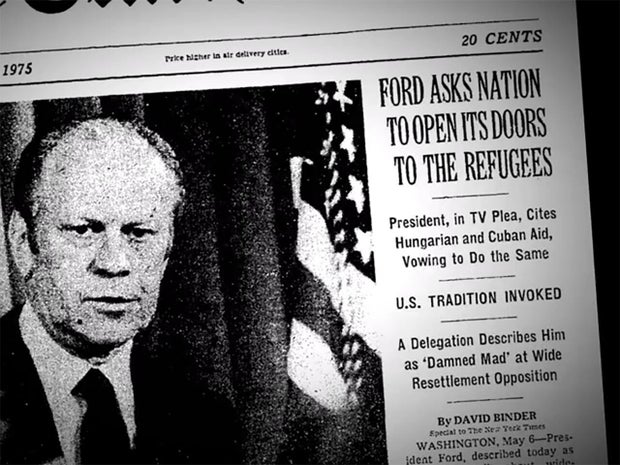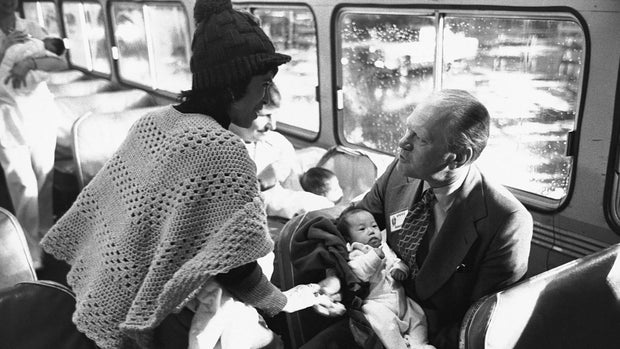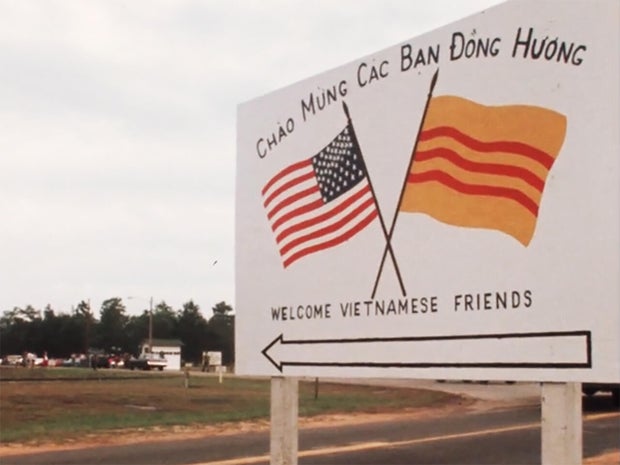Fifty years ago, when the city of Saigon fell and the U.S. military intervention in Southeast Asia came to an end, President Gerald Ford faced a choice: Many anti-communist South Vietnamese feared forced relocation and political persecution at home, and looked to America for refuge. But the American public was bitterly divided over whether to accept such a large influx of refugees. At the time, Lesley Stahl reported on the “overwhelmingly hostile” mail received on Capitol Hill about the issue; one letter, from a Nebraska constituent, read, “They bring only disease, corruption, and apathy.”
The U.S. unemployment rate sat at nearly 9 percent, a post-World War II high. To many, bringing destitute Vietnamese to American shores seemed nonsensical.
The New York Times
But President Ford saw the issue in stark moral terms: “There are tens of thousands of other South Vietnamese intellectuals, professors, teachers, editors, and opinion leaders who have supported the South Vietnamese cause and the alliance with the United States, to whom we have a profound moral obligation,” he said.
Ford ordered several airlifts to extract 130,000 South Vietnamese refugees and asylum-seekers. He signed into law a bill securing relocation aid and financial assistance.
And he corralled a coalition of religious groups, southern Democratic governors, and labor leaders to secure their housing and employment.
© CORBIS/Corbis via Getty Images
At first, many of the new refugees relied on public assistance and took low-paying jobs. But in the years that followed, most gained employment, and their reliance on government aid declined. They became small business owners and pillars of community … contributors large and small to the American tapestry. Among them: federal judges, a Pulitzer-winning novelist, and even an Oscar-winning actor.
“My journey started on a boat,” said “Everything Everywhere All at Once” star Ke Huy Quan. “I spent a year in a refugee camp, and somehow I ended up here, on Hollywood’s biggest stage.”
Ford’s decision to welcome these refugees wasn’t just the right thing to do – it was smart. He realized that in a nation of immigrants like ours, strength derives in large part from diversity. His leadership showed compassion, political courage, and moral clarity … qualities our leaders could use today more than ever.
CBS News
For more info:
Story produced by Robert Marston. Editor: Lauren Barnello.
See also:
READ more
Source link






